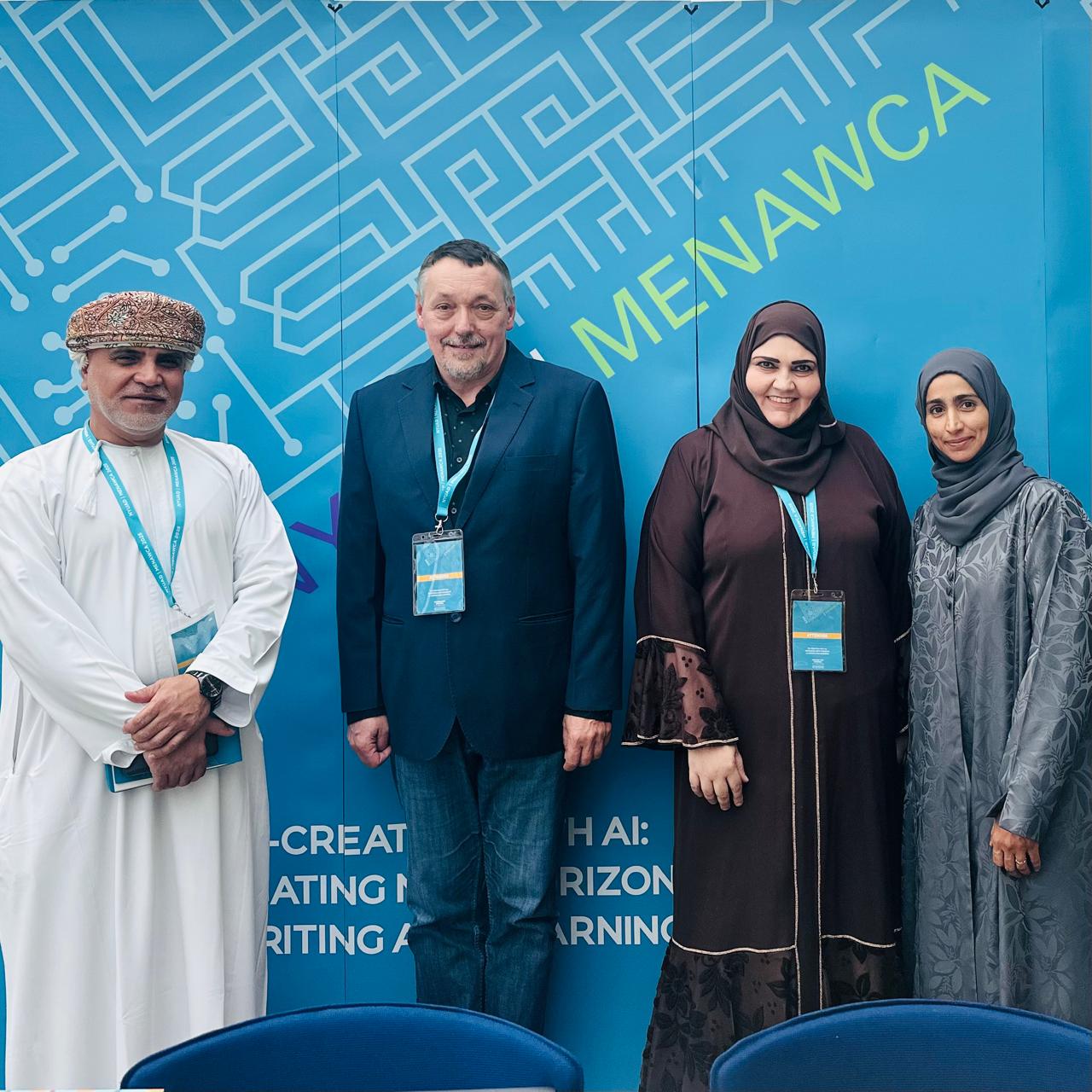Empowering Writing in the Age of AI: University of Nizwa at the MENAWCA 2025 Conference
Student Success System
In a rapidly changing educational landscape shaped by artificial intelligence, the Middle East and North Africa Writing Centers Alliance (MENAWCA) 2025 Conference brought together educators, researchers, and writing center professionals to reimagine the future of academic writing. Held from October 10 to 12, 2025, at New York University Abu Dhabi, the event provided an inspiring platform for collaboration, dialogue, and innovation across the region.
The conference remains a cornerstone event for professionals working in academic writing support across the MENA region. Unlike broader educational gatherings, MENAWCA focuses specifically on the development of writing centers—spaces that nurture academic integrity, communication, and student success. Participants benefited from a vibrant community that exchanged research findings, shared best practices, and explored emerging challenges in writing pedagogy. 
The University of Nizwa’s Student Success System (SSS) was represented by Dr Ahmed Al Rahbi, Ms Badriya Al Tobi, Ms Qataranada Al Mantheri, and Mr Erno Muzamel. Their participation underscored the University’s ongoing commitment to professional development, innovation, and the strengthening of its academic support services through active engagement in regional and international communities of practice. Through such involvement, the University of Nizwa continues to enhance its student-centered approach to learning and academic excellence.
The 2025 conference theme, “AI Awareness, Exploration, and Responsibility in Writing,” addressed the urgent need for educational institutions to navigate the implications of generative AI on academic writing. Among the keynote speakers were Dr Annette Vee from the University of Pittsburgh, who explored ethical approaches to integrating AI in writing pedagogy; Dr Maria Eleftheriou from the American University of Sharjah, who discussed reimagining writing centers through the lens of multilingualism, agency, and ethics; and Mr Michael Pazinas from Zayed University, who emphasized maintaining authenticity and human creativity in AI-assisted writing environments. Parallel sessions expanded on these discussions, exploring topics such as developing AI literacy among students and tutors, balancing authenticity and technology in writing, integrating AI tools into STEM and multilingual contexts, and strengthening motivation and engagement within writing centers. These sessions provided actionable insights directly relevant to the University of Nizwa’s ongoing efforts to modernise its writing and learning support systems under the SSS framework.
 Participation in MENAWCA 2025 reinforced the University of Nizwa’s alignment with international best practices in writing center operations. The conference offered practical strategies for enhancing student engagement, peer tutoring, and AI-integrated writing instruction, while also fostering professional networks that connect UoN staff with counterparts across the region. These collaborations are instrumental in maintaining the University’s leadership in promoting academic integrity, communication skills, and inclusive learning environments. For many attendees, the conference reaffirmed that writing centers are not merely spaces for academic improvement—they are transformative environments where students learn to think critically, communicate effectively, and engage ethically in the digital age.
Participation in MENAWCA 2025 reinforced the University of Nizwa’s alignment with international best practices in writing center operations. The conference offered practical strategies for enhancing student engagement, peer tutoring, and AI-integrated writing instruction, while also fostering professional networks that connect UoN staff with counterparts across the region. These collaborations are instrumental in maintaining the University’s leadership in promoting academic integrity, communication skills, and inclusive learning environments. For many attendees, the conference reaffirmed that writing centers are not merely spaces for academic improvement—they are transformative environments where students learn to think critically, communicate effectively, and engage ethically in the digital age.
The MENAWCA 2025 Conference reaffirmed that writing centers play a vital role in shaping the future of higher education—not just as spaces for improving academic writing, but as hubs of ethical reflection and innovation. For the University of Nizwa, this participation marks another step forward in its mission to empower learners and enhance educational excellence in an era increasingly defined by digital transformation and responsible use of AI.



